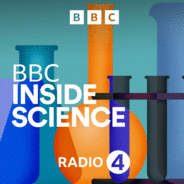PFAS chemicals, also known as forever chemicals, don’t break down in the environment. They can accumulate in the body and are found to have an array of harmful effects on human health. A major mapping project has revealed worryingly high levels of PFAS across thousands of sites in the UK. Experts are concerned that not enough is being done to reduce these chemicals from drinking water. They’re urging the government to re-evaluate current regulation. This week we dive into the properties of these chemicals: how dangerous are they and what can be done to protect public health? Professor Crispin Halsall, an environmental chemist from Lancaster University, tells us more. As charges are brought against four people for stealing and selling on US$1 million of dinosaur bones, we find out about the illegal – and legal – trade in fossils from palaeontologist Professor Steve Brusatte. New research has discovered the Moon is 40 million years older than we previously thought. Professor Sara Russell, a cosmic mineralogist and planetary scientist from the Natural History Museum, tells us more. And is there something we can we learn from animals about how to age better? Nicklas Brendborg discusses his book, Jellyfish Age Backwards: Nature’s Secrets to Longevity, which has been shortlisted for the Royal Society Trivedi Science Book Prize. Presenter: Victoria Gill
Producers: Hannah Robins, Harrison Lewis and Alice Lipscombe-Southwell
Editor: Richard Collings
Production Co-ordinator: Jana Bennett-Holesworth BBC Inside Science is produced in collaboration with the Open University.

Wissenschaft & Technik
BBC Inside Science Folgen
A weekly programme that illuminates the mysteries and challenges the controversies behind the science that's changing our world.
Folgen von BBC Inside Science
641 Folgen
-
Folge vom 23.11.2023Forever chemicals
-
Folge vom 16.11.2023White phosphorusWhite phosphorous is an incendiary material and if it were to be used in any built-up civilian areas, the practice would violate international law. We find out what makes white phosphorus so dangerous, and we ask how easy is it to identify? Andrea Sella, professor of chemistry at University College London, grants access to his laboratory and conducts an experiment with this highly flammable and volatile substance. Whole words and phrases from crushed and carbonised scrolls can be read for the first time in almost two thousand years. The documents, uncovered from Herculaneum, an ancient Roman town close to Pompeii which was buried under volcanic ash, have been made legible thanks to 3D scans and artificial intelligence. Dr. Federica Nicolardi, a papyrologist at the University of Naples, tells us more about this exciting discovery. Kate Zernike discusses her book The Exceptions, which tells the story of a group of 16 women who used their scientific know-how to inspire radical change. It’s been shortlisted for this year’s Royal Society Science Book Prize. And finally, this month marks exactly a year since beavers became a protected species in England. BBC Inside Science goes to Devon in search of these charismatic animals and we ask what effect they have been having on the countryside. Presenter: Victoria Gill Producers: Hannah Robins, Harrison Lewis, Alice Lipscombe-Southwell and Patrick Hughes Editor: Richard Collings Production Co-ordinator: Jana Bennett-Holesworth BBC Inside Science is produced in collaboration with the Open University.
-
Folge vom 09.11.2023Tumbling down the rabbit hole of assembly theoryA paper recently published in the journal Nature claimed that assembly theory could help explain and quantify selection and evolution. But what exactly is assembly theory? In this episode Marnie Chesterton speaks to science writer Philip Ball and zoologist and writer Professor Matthew Cobb. They dig into the science behind this tricky concept and figure out why it makes people so angry. A sample recovered by NASA from the Bennu asteroid hurtled back to earth recently. This week we saw what’s been retrieved from 200 million miles away. Studies on the dust and rock are just getting underway. Professor Tom Zega, one of the mission scientists, reveals why this sample will be important for many years to come. We also hear from Ed Yong who has been shortlisted for the Royal Society Trivedi Science Book Prize. He tells us about his book, An Immense World, where he encourages us to think beyond the confines of our fleshy bodies. People experience the world in many different ways. It all comes down to perception. We speak to Professor Fiona Macpherson who, along with neuroscientist Professor Anil Seth, are co-leads of The Perception Census which aims to document the differences. Fiona reveals how this could help shine a light on consciousness and what it means to be human. The census closes at the end of the month and everyone’s welcome. You can take part here: https://perceptioncensus.dreamachine.world Presenter: Marnie Chesterton Producers: Harrison Lewis and Alice Lipscombe-Southwell Editor: Richard Collings Production Co-ordinator: Jana Bennett-Holesworth BBC Inside Science is produced in collaboration with the Open University.
-
Folge vom 02.11.2023Life beyond EarthUnder the mighty radio Lovell Telescope at Jodrell Bank, Victoria Gill brings together some of the UK’s leading experts who were visiting the recent ‘bluedot’ science and music festival. They discussed the ongoing hunt for extraterrestrial life. We hear from Karen Olsson-Francis, a microbiologist who focuses on the tiny living things that have managed to occupy Earth's most hostile environments. Her research is helping shape space missions that are looking for evidence of life elsewhere in our solar system. Also on the panel is Libby Jackson, head of space exploration at the UK Space Agency, who specialises in preparing humans for the extremes of interplanetary travel. Finally, we hear from Tim O'Brien, associate director of the Jodrell Bank Centre for Astrophysics. He’s explored parts of the Universe that no human can travel to by making the most of the radio telescopes based at Jodrell Bank. Get the latest ‘inside’ scoop on how the UK is assisting with the search for life beyond Earth. Presenter: Victoria Gill Producers: Alice Lipscombe-Southwell, Harrison Lewis Editor: Richard Collings Production Co-ordinator: Jana Bennett-Holesworth BBC Inside Science is produced in collaboration with the Open University.
